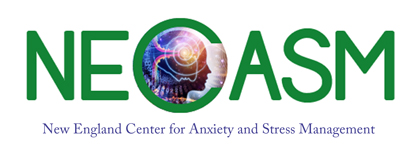 Everyone worries and feels anxious at times.
Everyone worries and feels anxious at times.
Do you, your child or someone you know identify with the following signs and symptoms of anxiety?
-
Are you constantly tense, worried, or on edge?
-
Does your anxiety interfere with your work, school, or family responsibilities?
-
Are you plagued by fears that you know are irrational, but can’t shake?
-
Do you believe that something bad will happen if certain things aren’t done a certain way?
-
Do you avoid everyday situations or activities because they cause you anxiety or stress?
-
Do you experience sudden, unexpected attacks of heart-pounding panic?
-
Do you feel like danger and catastrophe are around every corner?
-
Do you have rituals (counting, if you do something on one side you have to do the same on the other side, leaving your house and fearing you have left the coffee pot on, and turning around and going home to check)?
Nearly sixty million people from all backgrounds and ages in the United States have some type of anxiety disorder. Because of this, shame is often the biggest internal consequence of anxiety disorders. A person with an anxiety disorder is dealing with altered brain chemistry that’s compounded by stress of the disorder. By the time a child or adult exhibits the physical signs of anxiety, it has already infiltrated that person’s physiology.
Anxiety disorders impact entire family systems; therefore, the whole family must be educated and supported. It’s important for parents, spouses, siblings, teachers, coaches, or anybody, for that matter, to facilitate an environment of success for the individual suffering with the disorder.
The New England Center for Anxiety and Stress Management helps individuals learn how to accept and embrace their anxiety.
Thus, instead of condemning themselves, clients learn to celebrate who they are by understanding the neurological, physiological and behavioral components of their anxiety. Clients and loved ones learn that anxiety is not a question of a person’s will, determination, commitment, or lack thereof. Professionals at The New England Center for Anxiety & Stress Management teach effective coping techniques and strategies to individuals struggling with anxiety, as well as their loved ones.
NECASM offers anxiety-focused, therapeutic programs focused disorders such as Generalized Anxiety Disorder, Panic Disorder (with or without Agoraphobia), Separation Anxiety, Phobias, OCD, PTSD, Anxiety due to Perfectionism or Bullying, Performance Anxiety (Sports, Academic, etc.), Social Anxiety and School Avoidance due to fear. These individualized programs are tailored to the needs of children, adolescents, and adult clients. For more information on NECASM‘s therapy for anxiety disorders, contact us today.
